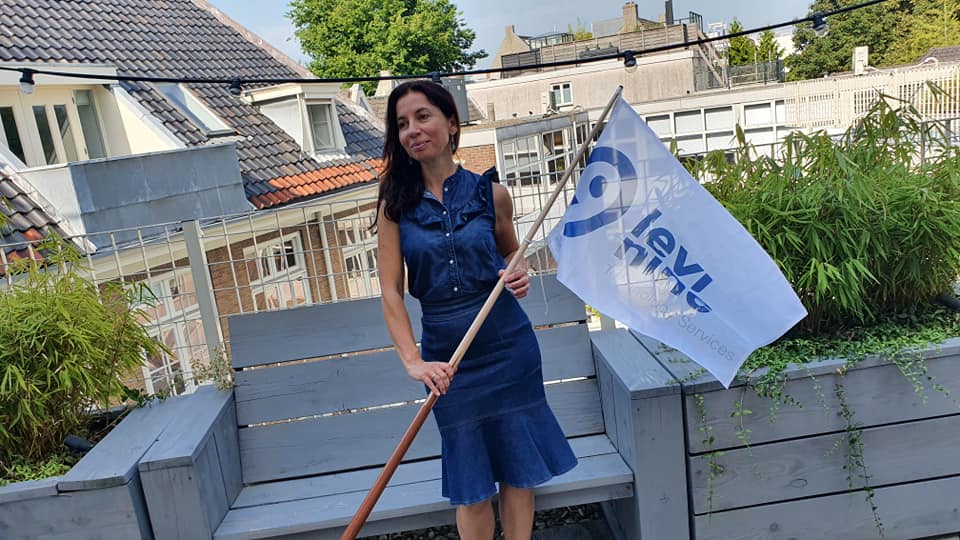As a specialist grows in a company, he or she can be supported by various professionals whose task is to help the employee adapt and develop. Oleksandr Korytskyy, Delivery Lead at Levi9, explains the role of a buddy, coach, and mentor, and who takes an employee under their wing and at what stage.
Buddy
The first step of a specialist in any company is onboarding – getting to know its structure, management, and team. In some companies, a buddy may accompany the newcomer during this process. The involvement of another person in the onboarding process is more of an emotional component, which is often simply replaced by video instructions and documentation. Therefore, this practice is not very common yet.
But at Levi9, it works well. A buddy is a colleague assigned to a newcomer during the onboarding period who helps them integrate into the company faster. This role can be played by a team leader, senior manager, project colleague, etc. Buddy has usually been working in the company for a long time, so he is well-versed in the processes, understands the documentation, and knows the people. They can advise on useful things to read and watch, and if you have a problem with a task, they can tell you how to solve it.
Support from a buddy at the onboarding stage will be useful for any new specialist in the company, regardless of their level of experience and position – both a beginner trainee and a head of a line or department.
Coach
When a specialist has already assimilated into the company, immersed himself or herself in the project, and passed the probationary or introductory period, the coaching phase usually begins.
The role of a coach can be played by a team leader, manager, or other colleague who is responsible for the specialist’s growth. Coaching involves communicating with the specialist about his or her future goals, OKRs and other milestones, i.e. developmental stages and criteria important for a successful career. During individual meetings with a coach, simple and eternal questions are raised: in which direction or technology the specialist wants to develop, what skills they plan to master, how they want to move on and whether they want to move at all. Given the unpredictability of events in Ukraine and changes in the IT market, the latter question is being asked more and more often nowadays: some people are comfortable staying in their current place and position, and don’t want to change companies or go into management, for example.
Mentor
When a specialist already feels at home in the team and has a development plan for the coming months, you can move on to mentoring. It involves a more experienced colleague (mentor) and a specialist (mentee) who wants to reach the level of their mentor or even surpass him or her, like the Jedi and Padawans in “Star Wars”.
Today, the term “mentoring” is being overused and used in any situation. For example, people say “a mentor will check your code”, although the role of a mentor is to guide and motivate, not to solve technical problems. A mentor acts as a guide and role model for his mentee and supports him emotionally. At the same time, the mentor only offers options for development based on his or her own experience, mistakes, achievements, and understanding of “how it should be done”. And the mentee can choose which option suits him or her and whether it suits him or her at all, because it is he or she who is responsible for the decision to implement a particular scenario.
It is important that mentoring is a two-way process. Only when both parties share the responsibility for mentoring can it be meaningful and productive. There are no restrictions on experience: mentoring is suitable for beginners, junior professionals, and seniors or team leaders. After all, a manager or a senior executive is not a god or the pinnacle of evolution, and such specialists also need mentors.
The practice of mentoring is quite widespread: for example, 84% of Fortune 500 companies have mentoring programmes. Mentoring makes business more efficient by helping to attract, retain and promote specialists in the team. In addition, it can strengthen and improve corporate culture by promoting inclusiveness and helping to build connections within the company.
With mentoring support, employees feel more confident, more productive, and are 5 times more likely to be promoted and receive a salary increase. Mentoring has a positive impact not only on the mentee but also on the mentors themselves: for example, mentors are 6 times more likely to be promoted than those who do not take on mentors. This is because a specialist, trying to explain something to another person, dives deeper into the topic and improves their skills.
What is the result?
Adaptation and development of any specialist in the company is a gradual process, not a leap from one place to another. Initially, the specialist, together with Buddy, gets to know the work structure, processes and team. When they have settled into the team and know their area of responsibility, the coach helps them create a roadmap for development in the company. And later, with the support of a mentor, the specialist expands his or her expertise and can look at his or her development from a new angle with an experienced mentor.
The best scenario, although not mandatory, is when the company provides all three stages: onboarding, coaching and mentoring. The development of a specialist in a team is a constant process of self-learning and skill improvement. But it is always better to have another person in the team who can help the specialist with tasks, coordinate or inspire a new round of development.










